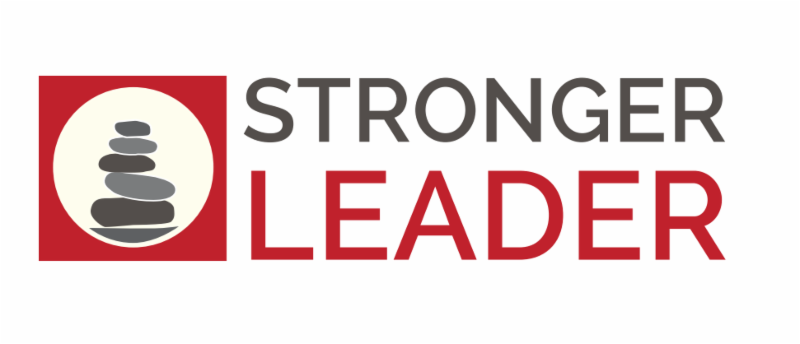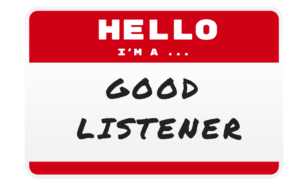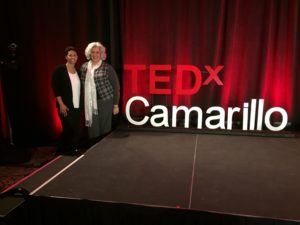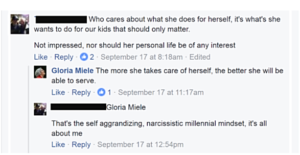When you go to work every day, do you have the chance to do what you do best, what you love to do most, and what gets you excited, motivated and ready to dive in?
If that’s how you feel, great! You’re working to your strengths, which means you are probably more productive, more engaged and even happier than those who aren't able to use their strengths on a regular basis.
When you know your own strengths, you’ll start focusing more on the strengths of others. It’s inevitable. It will change your perspective about how you work at your best and how to bring out the best in your team.
I didn't always think this way. In fact, I spent the first 20 years of my career focused almost entirely on what was wrong with people.
As a psychologist developing mental health assessment tools, I figured out ways to measure people's symptoms, pathology and disorders. I even worked on the "bible" of diagnosis: the DSM-IV (you'll find my name in the Acknowledgments - got the job as a grad student and enjoyed years of intensive learning [and pathologizing] for the greater good).
But at a certain point, I didn't want to look through the lens of weakness and pathology any more.
In my coach training, I learned about positive psychology and strengths-based approaches from other psychologists and mental health providers who had already shifted their perspective.
What surprised me was not that focusing on strengths had a positive impact but that so few people were applying a strengths-based approach to leadership. Organizations often put too much emphasis on the areas where you need to improve instead of the areas where you're already doing well and where extra emphasis could make you a star performer.
So whether you're in charge of a small work group or an entire division, here are 8 ways you can be a stronger leader and create a dynamic team that's more efficient, engaged and satisfied,
Use a Strengths-Based Approach. Am I repeating myself? Of course, you want to start with your strengths - that sweet spot between what you do well and what you love to do. Understanding your strengths and the strengths of others sets the tone to bring out the best in everyone.
I recommend taking the Strengthsfinder 2.0 from the Gallup organization to learn your Top 5. You can also get the workbook I use with my clients, "Use Your Strengths to Reach Your Goals," as my strengths-based gift to you!

Develop Emotional intelligence (EI). EI is the ability to understand yourself and others, as well as manage your own emotions and respond appropriately to those of others.
Some refer to it as a “soft skill,” but EI accounts for the majority of success in top leaders, far more than IQ. While your innate intelligence (IQ) is to an extent fixed, your EQ can be enhanced and improved. Using your strengths to enhance your EQ can give you an edge as a top performer.
Do you know what's a great indicator of EQ? Gratitude. Expressing your appreciation is an indicator of all four components of EI. People want to be appreciated, and good leaders know that a simple thank you can go a long way.
Embrace and Prepare for Change. Like death and taxes, change is inevitable. Especially as a leader, you have to be adept at managing change, communicating the need for change clearly, understanding the steps involved and engaging others in the process. If you lead change using your strengths and the strengths of others involved in the change process, you can navigate change much more smoothly.
Communicate effectively. Good communication is key for stronger leaders. You need to be a good listener, give effective feedback and be able to address conflict head on. Another important skill related to communication is empathy. Being attuned to someone else's perspective can really help you connect, understand concerns and address them in a way that makes sense, in turn improving communication. Good stuff!
Foster Teamwork and Collaboration. Teams come alive when each member is working to their strengths. Being a strength-based leader will help you create a team that’s working at its best! Cooperative relationship-building is an asset in any task, and in developing a team, it is essential.
Practice Self Care. It’s not discussed much as a leadership skill, but self-care is an important component in leading others. When you take time for yourself, you get to recharge. Plus you’re setting a good example for others. Do you schedule breaks in the day, times to step away from what you’re doing to rejuvenate and recharge? Do you run? Do yoga? Meditate? Get a regular massage? Schedule time off?How do you take care of yourself?
Unleash Creativity. A great leader is a visionary who thinks outside the box (or realizes there are no boxes at all). What are your creative strengths? How do you get your creative juices flowing? Stimulating different areas of the brain can be extremely liberating. What’s your creative outlet?
I find that one particular app on my phone helps me be more creative: the camera. I've taken some great iPhone photography classes and love to capture pictures of flowers, sunsets and clouds (you'll find a few photos of the dog and the kid on my Camera Roll too). I keep thinking I should invest in a "real" camera, but I get a whole lot of mileage from the one that's always in my pocket. Here's a recent capture.

Be a Coach. Great leaders empower and motivate others, and there are few more effective ways to do so than to focus on the strengths of your employees. What are they great at? What do they love to do?
Help others understand and leverage their strengths more in everything they're doing. Learn to be a developer (yes, one of my Top 5). Help set strengths-based goals (which, by the way, are easier to achieve!) and an accountability plan.
Which of these elements come naturally to you as a leader? Which need some additional focus? How do you see your strengths working for you as a leader?

If you want to bring out the best in yourself and your team, connect with us on social media for ongoing resources and updates on strengths-based leadership and other professional development training programs. For email updates, enter your information above (we NEVER spam) and download a free e-workbook to start putting your strengths to work right away.
You can also read more on my thoughts about strengths-based leadership in this in depth interview in the Strengths-Based Leader's Toolkit.




























